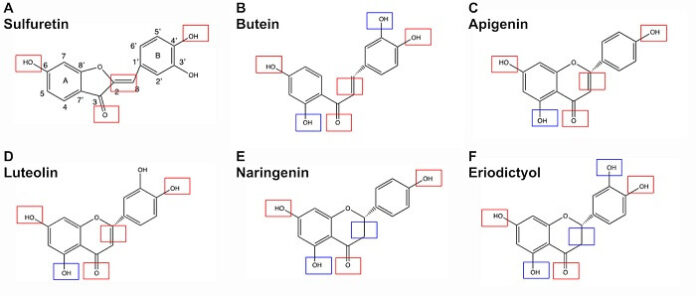

Scientists have discovered a natural compound that may halt the progression of certain cancers and demyelinating conditions, such as multiple sclerosis (MS), which damage the myelin sheath surrounding neurons. A study identified a plant-derived flavonoid called sulfuretin, which blocks the activity of an enzyme implicated in MS and cancer.
This discovery was made through cell-based tests at Oregon Health & Science University (OHSU). The next phase involves testing the compound in animal models to evaluate its effectiveness and potential side effects in treating cancer and neurodegenerative conditions like MS.
“We believe this drug could have wide-ranging impacts,” said Dr. Larry Sherman, a professor at OHSU’s Oregon National Primate Research Center. The researchers found that sulfuretin, along with two synthetic compounds, inhibited a specific enzyme called hyaluronidase, which degrades hyaluronic acid. This is significant because when hyaluronic acid breaks down, it causes two major problems:
- It inhibits myelin repair by preventing the maturation of oligodendrocytes, cells that produce myelin. Myelin damage is linked to MS, strokes, brain injuries, and some forms of dementia. In premature infants, delayed myelination can result in brain damage or cerebral palsy.
- It allows cancer cells to proliferate, as hyaluronidase activity prevents normal cell death in tumors. “We now have an inhibitor that could potentially stop that,” added Sherman.
As reported by phys.org, the study focuses on a specific type of hyaluronidase known as CEMIP (cell migration inducing and hyaluronan-binding protein), which is also involved in disorders such as osteoarthritis, brain injury from alcohol abuse, and potentially Alzheimer’s disease. Sulfuretin appears to inhibit CEMIP activity, offering hope for treating these conditions.
This breakthrough came after years of research in the lab of Dr. Angela Hoffman, a former chemistry professor at the University of Portland, where students screened plant compounds to find those that block hyaluronidase. Alec Peters, a graduate student in Sherman’s lab, found that sulfuretin blocked CEMIP activity in both tumor cells and oligodendrocyte progenitor cells.
Hoffman, who retired to lead her convent, collaborated with Sherman over the past decade. She credited the discovery to the work of hundreds of students who meticulously extracted and tested plant molecules. “Their efforts could contribute to treatments for Alzheimer’s and other neurodegenerative diseases,” Hoffman said, “especially if hyaluronic acid breakdown is a contributing factor.”























